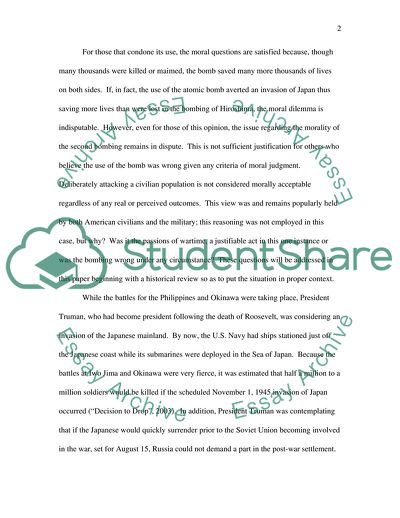Cite this document
(Can the the Atomic Bomb dropping on Hiroshima and Nagasaki be ever Essay, n.d.)
Can the the Atomic Bomb dropping on Hiroshima and Nagasaki be ever Essay. https://studentshare.org/history/1707098-was-the-dropping-of-the-atomic-bomb-on-hiroshima-and-nagasaki-justified-compare-two-opposing-historians-views
Can the the Atomic Bomb dropping on Hiroshima and Nagasaki be ever Essay. https://studentshare.org/history/1707098-was-the-dropping-of-the-atomic-bomb-on-hiroshima-and-nagasaki-justified-compare-two-opposing-historians-views
(Can the the Atomic Bomb Dropping on Hiroshima and Nagasaki Be Ever Essay)
Can the the Atomic Bomb Dropping on Hiroshima and Nagasaki Be Ever Essay. https://studentshare.org/history/1707098-was-the-dropping-of-the-atomic-bomb-on-hiroshima-and-nagasaki-justified-compare-two-opposing-historians-views.
Can the the Atomic Bomb Dropping on Hiroshima and Nagasaki Be Ever Essay. https://studentshare.org/history/1707098-was-the-dropping-of-the-atomic-bomb-on-hiroshima-and-nagasaki-justified-compare-two-opposing-historians-views.
“Can the the Atomic Bomb Dropping on Hiroshima and Nagasaki Be Ever Essay”. https://studentshare.org/history/1707098-was-the-dropping-of-the-atomic-bomb-on-hiroshima-and-nagasaki-justified-compare-two-opposing-historians-views.


